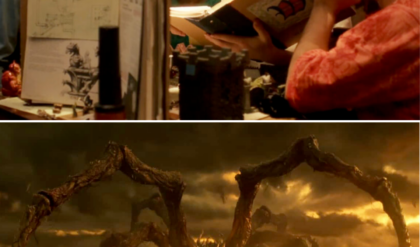The Last of Us Season 2 Finale: Bella Ramsey’s Triumph Amid Fan Backlash
HBO’s The Last of Us Season 2 has ended with a bang—or, for many fans, a frustrating whimper. The season finale, which aired on May 25, 2025, has ignited a firestorm of debate, with some viewers proclaiming that star Bella Ramsey “carried it right into the ocean,” a colorful metaphor for leading the show to a disappointing conclusion. Social media is ablaze with criticism, from complaints about a “half-baked” cliffhanger to groans over Ellie’s questionable decisions. Yet, amidst the backlash, Ramsey’s performance as the grief-stricken, vengeance-driven Ellie has been a beacon of brilliance, earning praise for its raw intensity. As fans grapple with the season’s polarizing end, the saga of The Last of Us reveals the high stakes of adapting a beloved video game and the challenges of satisfying a passionate fanbase.

A Season of High Stakes and Heartbreak
The Last of Us Season 2 picks up five years after the events of Season 1, set in a post-apocalyptic world ravaged by a fungal infection that turns humans into monstrous “Infected.” The story follows Ellie, played by Bella Ramsey, now 19 and living in the fortified community of Jackson, Wyoming, alongside Joel, her surrogate father, portrayed by Pedro Pascal. The season, based on the 2020 video game The Last of Us Part II, takes a darker turn, exploring themes of revenge, loss, and moral decay. Early in the season, a pivotal event—Joel’s brutal death at the hands of Abby, a new character played by Kaitlyn Dever—sets Ellie on a relentless quest for vengeance, forever altering her trajectory.
The show, created by Craig Mazin and Neil Druckmann, has been lauded for its cinematic production and emotional depth, building on the Emmy-winning success of Season 1. Ramsey, who faced initial casting backlash for not resembling the game’s Ellie, proved skeptics wrong with a Season 1 performance that blended vulnerability and grit. Season 2 demanded even more from the 21-year-old actor, who became the show’s sole lead after Joel’s exit. From navigating Ellie’s romance with Dina (Isabela Merced) to confronting the psychological toll of her actions, Ramsey delivered a tour-de-force performance, earning accolades for scenes that captured Ellie’s descent into darkness.
The Finale That Divided Fans
The Season 2 finale, titled “Feel Her Love,” has become the lightning rod for fan discontent. In the episode, Ellie’s pursuit of Abby leads her to a Seattle aquarium, where she believes her target is hiding. After surviving a harrowing journey—including a stormy boat ride and a near-fatal encounter with the Seraphites, a violent religious sect—Ellie arrives too late, finding only Abby’s allies, Owen and Mel. In a shocking moment, Ellie kills the pair, only to discover Mel was pregnant, mirroring the violence she sought to avenge. Overwhelmed by guilt, Ellie attempts to deliver the baby but fails, cementing her transformation into the very monster she despised. The episode ends with a cliffhanger: Abby appears to shoot Ellie, followed by a narrative shift to Abby’s perspective, leaving viewers hanging.
For many, this conclusion felt abrupt and unsatisfying. Fans on social media voiced frustration over the lack of resolution, with some calling the cliffhanger “phony” and accusing the show of prioritizing shock over substance. Others criticized the limited action involving Infected, a hallmark of the game, and felt the season’s narrow focus on Ellie’s revenge left little room for character development among the supporting cast. The phrase “Bella Ramsey carried it right into the ocean” emerged as a meme, suggesting that Ramsey’s intense performance couldn’t salvage a flawed narrative arc. Posts on X echoed this sentiment, with users lamenting the “tonally dour” finale and Ellie’s “illogical” choices.
Bella Ramsey’s Shining Moment
Despite the backlash, Ramsey’s performance has been a standout, even for critics of the finale. The actor, who identifies as non-binary and uses they/them pronouns, brought a chilling authenticity to Ellie’s unraveling. In one of the season’s most talked-about scenes, Ellie confronts Nora, one of Joel’s killers, in a spore-filled hospital basement. As Nora taunts her about Joel’s death, Ellie’s rage erupts, culminating in a brutal act of violence. Ramsey’s portrayal—marked by cold line delivery and haunting expressions—captured Ellie’s shift from a grieving teen to a vengeance-fueled force, earning comparisons to the game’s most iconic moments.
Ramsey’s ability to convey Ellie’s inner turmoil was equally evident in quieter scenes, such as her budding romance with Dina and her strained interactions with Joel before his death. The actor’s preparation, including physical training and guitar lessons to authentically portray Ellie’s musical moments, underscored their commitment. Ramsey, who was diagnosed with autism during Season 1, has spoken about how their neurodiversity enhances their emotional depth, allowing them to tap into Ellie’s complex psyche. Their journal entries from the set, written to process the weight of Joel’s death, reveal a deeply personal connection to the role.
The Challenges of Adaptation
The polarized response to Season 2 mirrors the reception of The Last of Us Part II in 2020, which divided gamers with its bold narrative choices, including Joel’s early death and the decision to make players control Abby. The game’s story, lauded for its emotional weight but criticized for its unrelenting bleakness, posed a unique challenge for HBO. While Season 1 expanded on the game’s standalone moments, Season 2 hewed closer to the source material, focusing on Ellie’s revenge arc at the expense of broader world-building. This fidelity, while satisfying some fans, alienated others who expected the show to deviate more significantly, as it did with Bill and Frank’s story in Season 1.
The finale’s cliffhanger, designed to set up a third season, has drawn particular ire for leaving too many questions unanswered. Unlike the game, which provided a complete arc for Ellie’s journey, the show splits the story, delaying Abby’s perspective until 2026 or later. This structural choice, coupled with a shorter seven-episode season, left some feeling shortchanged, especially given the high expectations set by Season 1’s 32 million viewers. The absence of Infected in key episodes further fueled complaints, as fans missed the visceral horror that defined the franchise.
The Cultural Context
The backlash against Season 2 also reflects broader tensions within fan culture. The Last of Us has always been a lightning rod for debate, from its LGBTQ+ representation to its morally ambiguous characters. Ramsey faced significant online trolling before Season 1, with critics arguing they didn’t resemble the game’s Ellie or lacked the physicality for Season 2’s violent Ellie. Yet, their performance has consistently silenced doubters, with even detractors acknowledging their ability to embody Ellie’s rage and regret. The “carried it right into the ocean” meme, while critical, inadvertently highlights Ramsey’s central role in driving the season’s narrative, for better or worse.
The controversy also underscores the challenges of adapting interactive media for television. In the game, players actively participate in Ellie’s violence, pressing buttons to enact her brutality, which creates a visceral connection to her moral decay. The show, limited to passive viewing, relies on Ramsey’s performance to convey this weight, a task they’ve handled with remarkable skill. However, the lack of player agency may have amplified dissatisfaction among gamers who felt the show failed to capture the game’s emotional stakes.
The Road Ahead
As The Last of Us heads toward Season 3, the show faces the daunting task of redeeming Season 2’s divisive ending. Ramsey has hinted at a smaller role, with Abby’s story taking center stage, suggesting a narrative shift that could address some criticisms. Kaitlyn Dever’s commanding presence as Abby promises a fresh perspective, potentially deepening the exploration of cycles of violence. Meanwhile, Ramsey’s commitment to the role remains unwavering, with the actor expressing enthusiasm for continuing Ellie’s journey, even joking they’d play her “forever.”
For HBO, the challenge is balancing fan expectations with the show’s ambitious vision. The network’s decision to split Part II’s story across multiple seasons, while risky, reflects confidence in the franchise’s staying power. Whether Season 3 can deliver the closure fans crave remains to be seen, but Ramsey’s performance ensures Ellie’s story will remain a focal point, regardless of the narrative’s twists.
A Finale That Sparks Debate
The The Last of Us Season 2 finale is a paradox: a showcase of Bella Ramsey’s extraordinary talent and a lightning rod for fan frustration. The cry that Ramsey “carried it right into the ocean” captures the season’s highs and lows—a gripping performance unable to fully overcome a divisive script. As the dust settles, the saga of Ellie and The Last of Us continues to provoke, challenge, and captivate, proving that even a flawed season can spark a cultural conversation. So, dive into the debate, weigh the triumphs and missteps, and uncover why this finale has everyone buzzing.





